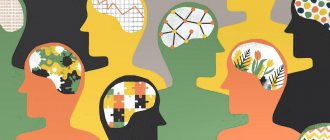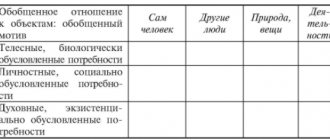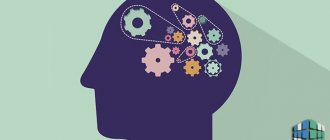Pedagogy is a science that plays a fundamental role in the process of formation and education of personality. During teaching activities, knowledge, skills and experience are transferred to the younger generation, that is, students are gradually prepared for independent, autonomous life.
In addition to education and personality development, the term “pedagogy” includes the following aspects:
- search, development, improvement of new teaching methods;
- analysis, characterization, forecasting, creation of modern systems for the development and formation of personality;
- preparing the individual for adult, independent life in society;
- identifying certain legitimate repetitions;
- creating perspectives during the learning period.
Pedagogy is closely related to such disciplines as psychology, pediatrics, philosophy, ethics, physiology, sociology and social pedagogy.
The process of educating a personality through pedagogy is impossible without knowledge and clear mastery of all of the listed scientific fields, since any teacher is obliged to take into account physiological characteristics (temperament, physique, heredity), personal qualities, psychotypes, present social factors, and behavior patterns of students.
For the productive upbringing of teenage and younger children, it is important to find a personalized approach to each student. And ignorance of the above basics can lead to psychological or physiological harm to the health of schoolchildren/preschoolers.
Personality development
Personality modification occurs under the influence of two factors:
- individual – personal perception of events, choice of priorities and moral values;
- social – the formation of personality is carried out under the influence of society, generally accepted norms of behavior in society, and the educational process.
Important
The holistic formation and improvement of individual qualities, character, and behavior patterns is directly related to education. It guides and promotes the organization of the development of the individual based on the priorities and goals of society.
There are two fundamental concepts that predictively determine the psychological and social development of individuality:
- Genetic concept - it is assumed that all values, character traits, behavior style, intelligence are inherited by a person when he is born.
- External (social) concept - if you believe this idea, then at the birth of a person, at the biogenetic level, no “programs” are embedded in him. His behavior, personal qualities, and needs are formed under the influence of the surrounding society, as well as life circumstances. In the educational and life processes, forced demands, interests, and various desires appear, which over time are transformed together with the outlook on life and life aspirations. That is, a person sets priorities or moral standards for himself, enters into intrapersonal conflicts due to the impossibility of definitely getting what he wants, or due to other circumstances.
Social education as a social institution
The problem of modernity
In pedagogy, formation is the process of personality formation. And it is usually considered as a problem of education. And in the modern 21st century it is really acute.
This is because now many people have a tendency to advocate the free development of personality. Some even seriously consider pedagogical education to be a violation of the pupil/student’s right to be an individual. Therefore, a professional teacher must competently combine traditional methods with modern ones.
Self-determination is important. But! No less important is the integration of the student into world and national culture, the formation of him as a citizen, as well as instilling in him the awareness that without cooperation and mutual understanding it is impossible to exist in modern society. Foreign concepts are interesting, but they cannot be transferred unchanged and, especially, completely into our lives. This is what parents of the 21st century must understand first.
How does upbringing influence the formation of personality?
A person is formed as a result of the direct influence of countless factors - sub-, objective, external - internal, natural - social, conscious - unconscious, controlled - arising unpredictably/instantly.
At the same time, each individual acts as a subject of his own personal formation, development, and education. That is, regardless of the events happening around him, he does not display them or perceive them photographically. He forms his own opinions and concepts on their basis. Determines from his point of view their necessity, correctness and appropriateness.
The process of purposeful formation of the personality of a junior schoolchild ensures organization during his upbringing. The main goal of this management model is to pacify its unbridled behavior in society. In this way, the teacher achieves discipline, ordering of actions, and holistic behavior from the teacher.
During the learning process, relationships of a social type develop between teacher and student. The pedagogical goal is the result of the interaction between teacher and student, or otherwise the product of their common activity. The last indicator serves as an assessment of the teacher’s work, the quality of his organization of the educational course, which can only be obtained by reproducing an analysis of the student’s intellectual/social improvement, shifts in his development, and direct personal development.
Education is a dual action in which the student must take an active part. In this case, the coordinating role is always assigned to the teacher. The student acts as a direct participant in educational activities, during which he has the right to express his opinion, obey or, on the contrary, resist the stereotypes and norms in question.
Team
This is the main base, with the exception of the family, where children receive their first social experience. It is in the team that the child begins his development as an individual. In addition, in school, communication is planned and subsequently directed by highly qualified teachers.
A team is an association of students characterized by certain characteristics. The main one is that they have a common socially significant goal - obtaining an education.
Another principle involves the joint activities of the team. And a relationship of responsible dependence. Everyone knows that a specific connection is formed between members of any team, which reflects both the unity of their activities and experiences with value judgments.
The last sign of a team is the presence of a common governing body. In this case, naturally, it is the teacher who regulates all psychological and pedagogical processes. It is the teacher who creates a healthy microclimate in the team, promotes friendly relationships between students, and helps them be united. And it depends on the teacher whether the children understand what mutual understanding and mutual assistance are.
Education as a means to the development of individuality
Education is recognized as the main factor in the formation of personality. During the educational process, children actively interact with peers, adults and the environment, and in a different way - they are socialized in society.
Components of education
- A child is an object of education. During the period of socialization, he develops subjective values, establishes a certain vision, worldview, and acquires habits, knowledge, and applied skills.
Note!
There is often a tendency to copy the behavior of adults and individuals, since the student is under the constant influence of older people and the environment. Therefore, adults must set an example of correct behavior!
- Adults are the initiators of educational action, but at the same time they themselves are subject to education in various life situations of society.
- Society - a collective - creates conditions for self-affirmation, self-improvement, and satisfaction of aesthetic and moral needs.
- Social environment - affects the quality of the educational process within society, home, school.
How to raise a child with personality
Changes taking place
Methods of team building in pedagogy are intertwined with the principles that the teacher follows in individual work with students. Be that as it may, a highly qualified specialist ultimately achieves impressive results. Students develop a new level of affective-need and cognitive spheres, stable forms of activity and behavior arise, social orientation and individual character develop. In the process, each of them is transformed. Because personality development implies the origin of changes in the psyche, as well as in the spiritual and intellectual sphere of the student.
Positive transformations include improving memory, character, thinking and will. This also includes the acquisition, expansion and subsequent deepening of knowledge, a certain intellectual growth. Naturally, all this is accompanied by a change in consciousness and moral development.
If expressed in scientific language, the student begins to turn into a subject of social activity and interpersonal relationships. And he doesn't just move from a lower level to a higher level. Quantitative changes dialectically transform into qualitative transformations of the spiritual and mental characteristics of the pupil.
This is socialization. A young member of society learns to assimilate values, norms, attitudes, adopts patterns of behavior, and reproduces the acquired life experience. And this process does not stop. Socialization lasts throughout life. But it begins at school, and is kept under the control of caring professional teachers, on whom it largely depends on what their students will become in the future.
The role of games in personality development
For children attending kindergartens or schools, games are of great importance in the process of personality formation and education. In a playful form, information is easier to assimilate, children show their personal qualities, and they develop strategic, imaginative thinking.
How does play affect an individual's development?
- During the period of play, children learn to interact with each other, they develop communication and behavior skills in society.
- Leadership qualities and the ability to independently make choices and make decisions develop.
- In addition, logical/role-playing games have a positive effect on mental thinking and memory. The child learns to conform to a certain role, begins to understand the meaning of established norms and rules, and tries to adhere to them.
- Such characteristic traits as determination, responsibility, attentiveness are born, children learn to calculate the outcome of life situations.
By analyzing a child’s behavior in play activities, it is possible to identify shortcomings in his learning and development, in order to then adjust a personalized approach to him to correct these nuances.
Culture
This concept is very multifaceted. And it is reflected in pedagogy. Formation is a complex process. It implies instilling in students aesthetic and ethical tastes, as well as the ability to see beauty in what man once created, or to find it in something else.
Why is it important? Because the personality whose formation we are talking about can only become a person who has become a part of sociocultural life. Every good teacher can convey this to students. In psychology, which is closely related to pedagogy, the concept of “personality” means the totality of preferences and habits developed by a person, his social and cultural experience, knowledge, skills and ability to think independently.
However, we can put it more simply. A person is an educated and intelligent person. And the goals of pedagogy are to arouse interest among students in everything that will help them become such. And in the subsequent provision of appropriate assistance to them in achieving their plans.
A good teacher promotes the development of students' inclinations, abilities and interests, and encourages them to creative activity. It also helps to cultivate in them an attitude towards work, society, various professions, parents, art, friends, life. But the main goals of pedagogy are to shape behavior and consciousness.
Genetics and biology
The process of personality formation begins in the womb. It is not worth assuming that if you read Plato to an unborn child, he will grow up to be a thinker. At the stage of biological formation, genetic factors are laid down. Those diseases and pathologies that are transmitted to the baby from parents.
Genetic and biological factors influencing the formation of personality:
- Biochemical features: mental illness, material metabolism.
- Hereditary diseases.
- The lifestyle that the parents led while carrying the child: even the stress of the mother can affect the biochemical and physical development of the fetus.
- Anatomical features.
Genetics and biology are the base from which it all begins. Depending on the environment, upbringing and a number of other factors, a person will behave differently in different conditions. The personality of a disabled person who grows up in the center of a large city will be different from that of a person with the same condition who was born in a village in a newly developing country.











